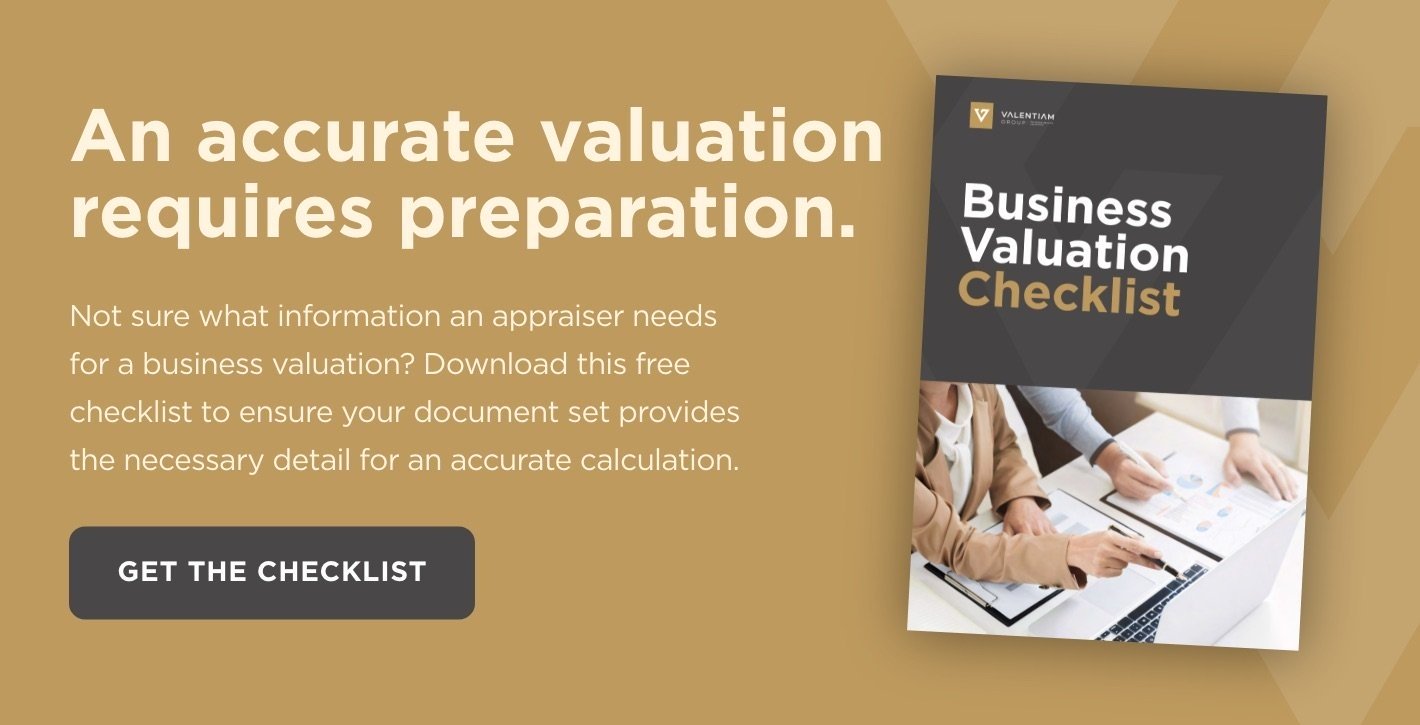How Much Does A Business Valuation Cost?
Posted by Valentiam Group on June 17, 2020

One of the most frequently asked questions about business valuations is: “How much does a business valuation cost?”
This is a complex question with no easy answer, though there are numerous articles online that attempt to assign a range for the average cost of a business valuation. The ranges quoted, however, are so large as to be useless in estimating what the cost will be for any specific case.
That’s because a number of factors impact the cost of business valuation services. The size, type, and complexity of the business; the purpose for the valuation; the company’s ownership structure; and other variables will determine the complexity of the valuation and, in turn, the cost of preparing it. In this article, we’ll look at all the different factors that can affect the cost of preparing a business valuation report. In general, you can assume that a valuation that involves more complexity in any of these factors will result in a higher business valuation cost.
Download our free Business Valuation Checklist to learn about the information you’ll need to provide for an accurate, comprehensive valuation of your business.
Factors That Affect Business Valuation Cost
A business valuation starts with understanding the business and the purpose of the valuation, and carries through data collection to selecting the proper valuation approach and calculating a value. The cost will be a combination of all of these factors—the type of business (private, small, or large and complex), the type and amount of data gathered and evaluated, and the valuation method or methods most appropriate for calculating the value.
In a previous article, we outlined the steps in performing a business valuation:
- Understand the purpose of the valuation.
- Determine the basis of value.
- Determine the premise of value.
- Review the historic performance of the business.
- Determine the future outlook for the business.
- Determine the valuation approach to use.
- Apply discounts.
- Arrive at a determination of value.
There are several steps in the process where greater complexity can arise. From the outset, the purpose for the valuation may determine how costly it will be to perform.
Business Valuation Steps With Associated Cost Factors
|
How much does a business valuation cost? It depends.
Due to the factors outlined above, the cost of compiling a business valuation report for your business or business assets depends on both the individual business and the business situation or reason for seeking the appraisal. (Tweet this!) Without an understanding of both, a valuation expert will not only be incapable of valuing the business—he or she will be unable to estimate the cost of performing the valuation.
At Valentiam, we have expertise in all aspects of business valuation and can assess the factors that will drive costs in performing your business valuation. Every business and situation is different, so we customize the valuation approach to arrive at the most accurate, defensible value we can provide; this means that the price for performing the valuation will be customized as well, to match the level of difficulty involved in the appraisal.
Need help determining the value of your business?
At Valentiam, our valuation specialists are experienced in all valuation methods acceptable in accounting practice. We bring collective decades of expertise in valuation and transfer pricing to every project. Give us a call to see how we can help you with your business valuation and transfer pricing needs.
Topics: Business valuation
Related Posts
EBITDA Multiples By Industry: An Analysis
EBITDA multiples by industry indicate growth, profitability, and stability of profits in various sectors—and are a quick and easy way to estimate value.
Valuation Methods: A Guide
Different types of business valuation methods are suited to specific needs. Here are the three primary types of valuation techniques and when they should be used.


